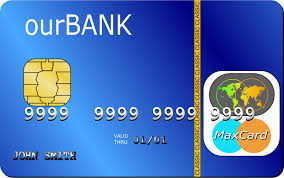How to Boost Your Website Traffic: A Comprehensive Guide
As a business owner or marketer, one of your main goals is to drive traffic to your website. After all, the more people who visit your site, the more opportunities you have to convert them into paying customers. But with so much competition out there, how do you ensure that your website stands out from the crowd?
In this comprehensive guide, we'll cover all the essential strategies and tactics you need to know to increase your website traffic and outrank your competitors.
- Conduct Keyword Research
Before you start optimizing your website, you need to understand what your potential customers are searching for. This is where keyword research comes in. By identifying the keywords and phrases that are most relevant to your business, you can create content that addresses the needs of your target audience and appears in the search results for those terms.
Tools like Google Keyword Planner, Ahrefs, and SEMrush can help you identify the keywords that your competitors are ranking for and the ones that have the highest search volume. By targeting these keywords in your content and on-page optimization, you can increase your chances of ranking higher in the search results and attracting more traffic to your site.
- Create High-Quality Content
Content is still king when it comes to driving traffic to your website. But not all content is created equal. To attract and engage your target audience, you need to create high-quality, informative, and engaging content that addresses their needs and interests.
This could be in the form of blog posts, videos, infographics, podcasts, or any other type of content that your audience prefers. The key is to provide value and establish yourself as an authority in your niche. By creating content that solves your audience's problems or answers their questions, you can attract more traffic to your site and increase your chances of converting those visitors into customers.
- Optimize Your On-Page Elements
On-page optimization refers to the elements on your website that you can control, such as your content, meta tags, and internal links. By optimizing these elements for your target keywords, you can increase your chances of ranking higher in the search results and attracting more traffic to your site.
Some of the key on-page elements you should focus on include:
- Title tags: Use your target keyword in your title tag and keep it under 60 characters.
- Meta descriptions: Write compelling meta descriptions that include your target keyword and encourage clicks.
- Header tags: Use H1, H2, and H3 tags to structure your content and include your target keywords where relevant.
- Internal links: Link to other pages on your site where relevant to provide additional value to your visitors.
- Build Quality Backlinks
Backlinks are still one of the most important ranking factors in Google's algorithm. By earning links from high-quality, relevant websites, you can signal to Google that your site is authoritative and deserves to rank higher in the search results.
Some strategies for building quality backlinks include:
- Guest blogging on relevant websites
- Broken link building
- Creating high-quality, shareable content that naturally earns links
- Reaching out to influencers and asking them to link to your content
- Leverage Social Media
Social media can be a powerful tool for driving traffic to your website and building your brand. By sharing your content on social media and engaging with your followers, you can increase your visibility and attract more visitors to your site.
To make the most of social media, it's important to:
- Identify the social networks that your target audience uses most
- Create engaging, shareable content that resonates with your audience
- Use social media to promote your content and drive traffic to your site
- Engage with your followers and build relationships with them over time






